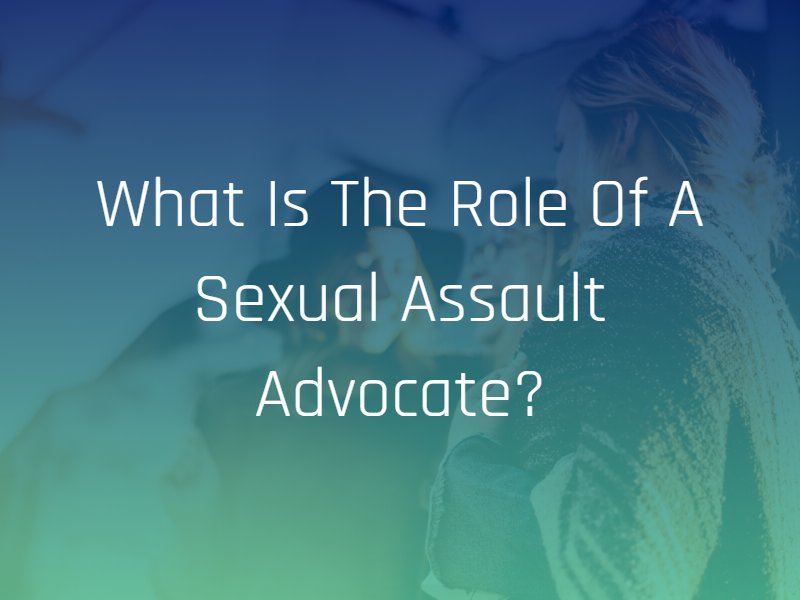In the aftermath of sexual violence, survivors need support. Enduring an act of sexual assault can lead to months and years of emotional turmoil, and support services are vital to ensure that survivors receive the care they need following the trauma.
One important role in sexual violence resource organizations is the sexual assault victim advocate, who helps survivors navigate complex legal systems and seek the resources they need to recover.
What Is a Sexual Assault Advocate?
Surviving the aftermath of sexual violence is a different ordeal than surviving the crime itself. Feelings of shame, guilt, fear, depression, and anger are common after experiencing assault, and they often prevent survivors from seeking support or justice. In addition, navigating the criminal justice system can be equally as difficult, especially after enduring trauma.
Sexual assault advocates work as representatives for victims of sexual violence, helping victims navigate these complex processes and understand the resources available to them. These advocates have special training from sexual violence organizations to provide various services, from counseling to helping survivors find legal representation.
What Services Do Sexual Assault Advocates Provide?
Depending on the organization, sexual assault victim’s advocates can provide a number of specialized services for survivors.
- Counseling and emotional support: Many sexual assault victim’s advocates can provide basic counseling and crisis intervention to survivors. An advocate can open a discussion with the survivor on the effects of the trauma and help him or her develop healthy coping strategies, as well as connect the survivor with relevant resources.
- Hospital accompaniment: With the survivor’s consent, advocates can accompany him or her to a hospital while he or she receives a sexual assault forensic exam. An advocate may also explain the options the survivor has for receiving medical and mental health care.
- Criminal justice support: Advocates may accompany survivors to court dates, interviews with police, and sentencing hearings, as well as connect survivors with legal resources. Advocates also ensure that survivors receive respect and understanding from law enforcement officers. These individuals also receive training on victims’ rights, and can inform the victim of what his or her rights are.
- Safety planning: In situations where ongoing sexual abuse or intimate partner violence is a factor, victim’s advocates can help survivors address their immediate safety needs and create a plan to remain safe or leave a dangerous situation.
Advocates may also help victims understand the systems they have to enter in order to seek justice, acting as a liaison during each step of the process. These individuals are vital to sexual assault survivor care, since they play a vital role in validating survivors’ experiences, empowering survivors to seek help, and allow survivors to retain a sense of control after a traumatic event.
Who Can Become a Sexual Assault Advocate?
Anyone can pursue a career in victims’ advocacy, as long as they obtain the correct experience and credentials. Some organizations train volunteers to perform certain duties, such as providing crisis support over the phone. For more specialized victims’ services, training and education is necessary.
Other organizations seek sexual assault advocates with specialized skills, such as people with experience in law or law enforcement, medical care, mental health counseling, and social work. In addition, victim’s advocates also receive training and certification to provide these specialized services.
Becoming a sexual assault victim’s advocate is important to help survivors across the country recover from these traumatic experiences. If you are a survivor of sexual assault, contact an Rideshare sexual assault lawyer or an organization offering victim’s advocacy services as soon as possible to connect with resources, treatment, and legal representation.

